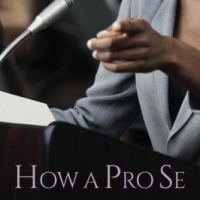
How A Pro Se Won Justice: An Inside Look at an Educator's Stunning Civil Rights-Employment Victory Against the Chicago Board of Education in the US Court of Appeals for the Seventh Circuit
by Joyce HutchensPublish: Sep 08, 2017African American Interest Biographies & MemoirsBook Overview
How a Pro Se Won Justice is the remarkable story of one woman’s disturbing but valiant eight-year legal fight against a clout-heavy school district. It is corroborated by court records and other legal instruments. It also contains a link to the parties' oral argument, the names of all key players, and includes excerpts from court hearings, deposition transcripts, district and appellate court briefs, letters, memos, emails and the Seventh Circuit's entire opinion, which was written by Judge Richard Posner.This memoir is a must-read for every pro se litigant, educator, legal professional, law school student, indeed, every American taxpayer, as it addresses significant issues related to ethics and the professional practice, conduct and behavior of public servants and those who serve in the legal arena. What occurs during the entire eight-year period shocks the conscience.
Joyce Hutchens, a veteran and highly accomplished English, journalism, and business teacher at one of Chicago’s leading public high schools, leaves the classroom to become president of a training and consulting firm before returning to education three years later—this time at Consuella B. York Alternative High School, located in the Cook County Jail.
After the principal retires and is replaced by the assistant principal, Hutchens is unjustly targeted and disciplined. She transfers to the school district’s Professional Development Unit, and one year later, she and every other black employee in her department are laid off. Within one week, a white staff person assumes her former position.
Alleging race discrimination and hoping for justice, Hutchens files a federal lawsuit against the Chicago Board of Education. But after several long years of court delays, and despite Hutchens' evidence which supports her claims of discrimination and proves the testimonies of the defendants and their witnesses are fabricated, the judge assigned to her case excludes her evidence in his court opinion and rules against her—twice.
With no money, no legal training, and abandoned by two attorneys, Hutchens proceeds pro se and appeals the judge’s ruling, writing her own appellate briefs and engaging in an oral argument against the Chicago Board of Education’s attorney.
Hutchens describes step-by-step how she wrote her two appellant briefs, prepared for and presented her oral argument, and won the appeals court's unanimous decision reversal of the district court's decision in her federal lawsuit without a lawyer.

